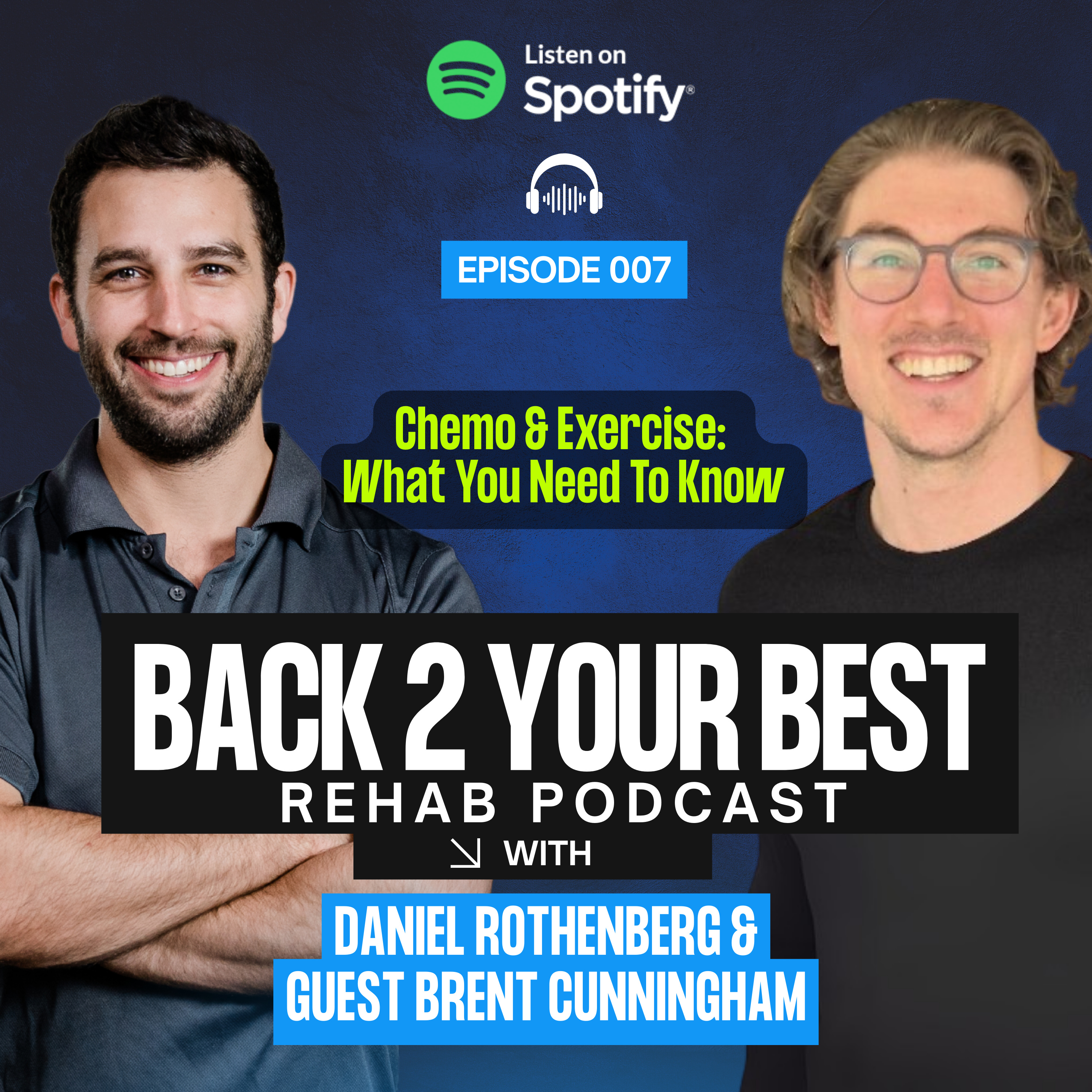Back 2 Your Best Rehab Podcast

Back 2 Your Best Rehab Podcast
Podcast Description
Real stories. Real recoveries. Real hope.
Join us as we dive into the journeys of people who have overcome chronic pain and injury. From setbacks to breakthroughs, they share their challenges, insights, and successes—proving that recovery is possible. This podcast is aimed at giving hope and optimism to those going through similar experiences, inspiring and empowering you to take back control of your health.
Podcast Insights
Content Themes
The podcast covers topics such as chronic pain management, rehabilitation strategies, strength training, and psychological aspects of recovery. Episodes include discussions with experts like Zane Bormann on strength training as rehabilitation and Adam Henry sharing a personal recovery story from military-related injuries, emphasizing the multifaceted nature of healing.

Real stories. Real recoveries. Real hope.
Join us as we dive into the journeys of people who have overcome chronic pain and injury. From setbacks to breakthroughs, they share their challenges, insights, and successes—proving that recovery is possible. This podcast is aimed at giving hope and optimism to those going through similar experiences, inspiring and empowering you to take back control of your health.
Exercise during cancer treatment isn’t one-size-fits-all—and it shouldn’t be. Exercise physiologist and PhD candidate Brent Cunningham explains how auto-regulation helps patients adjust training on the fly, why both aerobic and resistance work matter, and how to dose sessions to support recovery instead of draining it. We cover safety considerations by treatment type, what to expect in a session, and practical ways to find programs and support in Australia.
Key Points:
The “three buckets”: prevention, during treatment, survivorship
Why intensity helps—and how to make it safe with RPE-based auto-regulation
Picking the right levers: load, sets, reps, rest, and especially volume on high-fatigue days
Aerobic vs resistance: cardiotoxicity considerations, muscle preservation, power, and function
Peripheral neuropathy, bone metastases, radiation skin changes—what to modify and how
Training timing around infusions; early research on the tumour microenvironment
Supervised vs unsupervised: outcomes, behaviour change, and building self-efficacy
How long it takes to move the needle on cancer-related fatigue (think 12–16 weeks)
Finding services: Cancer Council, cancer-specific organisations, ESSA, ACSM
Australian access: GP Chronic Disease Management Plan for subsidised sessions
Brent’s project: building practical tools to adjust training day-to-day during chemo
Guest links:
LinkedIn: Brent Cunningham
Research: ResearchGate – Brent Cunningham
Coaching & education: tmrwlabtraining
Scope & Show Notes:

Disclaimer
This podcast’s information is provided for general reference and was obtained from publicly accessible sources. The Podcast Collaborative neither produces nor verifies the content, accuracy, or suitability of this podcast. Views and opinions belong solely to the podcast creators and guests.
For a complete disclaimer, please see our Full Disclaimer on the archive page. The Podcast Collaborative bears no responsibility for the podcast’s themes, language, or overall content. Listener discretion is advised. Read our Terms of Use and Privacy Policy for more details.